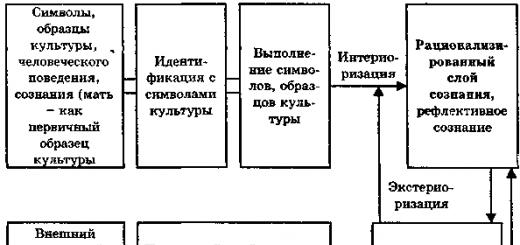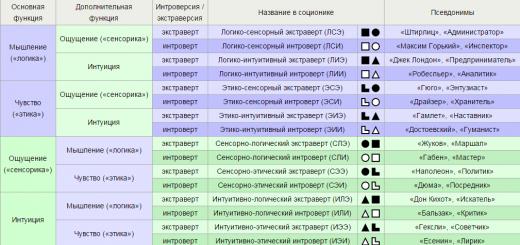Today French is one of the most popular among Russian-speakers in many countries, and especially among the Russian-speaking population in France. After all, if you look at the statistics in France, 400,000 Russian-speaking people officially live here today. If you fall into this figure, then you probably already have a question “Where and how to start learning French? A good French teacher - how to find? French textbook - which one to choose? In fact, these issues are not so easy to solve while in a foreign country.
The same question worries the French, they are diligently looking for how to learn Russian for foreigners. With such a large Russian-speaking population in France, you need to know at least a minimum of the Russian language. Not less than important problem affects bilingual Russian-French families who are looking for ways for their bilingual children to learn Russian as a foreign language. After all, it is much easier for such children to learn Russian as a second native language.
|
Lessons FR RUS languages |
 Lessons French |
 Russian language for children and adults |
Russian and French, where to start learning.
 When learning any language, be it Russian or French, the learning system should be gradual and the same for any foreign language. The study of the French or Russian language should first of all begin with its basics, that is, the student must master the initial reading skills, gain initial vocabulary and must know a minimum grammar base that will allow him to build simple sentence structures. These are the first and minimum requirements for everyone who decides to learn Russian or French. After that, everything will go, as we say, according to the “pyramid” system. One information will be superimposed on another, thus, you will expand your knowledge of the language and replenish your vocabulary.
When learning any language, be it Russian or French, the learning system should be gradual and the same for any foreign language. The study of the French or Russian language should first of all begin with its basics, that is, the student must master the initial reading skills, gain initial vocabulary and must know a minimum grammar base that will allow him to build simple sentence structures. These are the first and minimum requirements for everyone who decides to learn Russian or French. After that, everything will go, as we say, according to the “pyramid” system. One information will be superimposed on another, thus, you will expand your knowledge of the language and replenish your vocabulary.
Learn French or Russian without a teacher?
 A good teacher of French or Russian is one of the essential parts of learning a language. After all, French for beginners for adults and children, as well as Russian for foreigners, will depend on how much the teacher himself loves this language and knows how to present it correctly for his students. A good teacher of French and Russian should first of all focus on the end result in learning. Which, in turn, I, Svetlana Sabi, a teacher of French and Russian as a foreign language, do. First of all, it is important for me that my student love the language being studied as much as I love it, and, of course, be set for a positive and quick result. As a rule, according to my method, when we start learning French for children or adults, just like Russian as a foreign language, we see progress already in the second or third lesson. At the first lesson, my students already know how to read in a foreign language, they know how to compose the first elementary phrases. A lot depends on both the teacher and the student in learning, but we must not forget that when studying French or Russian, for the best effect, you need to study steadily and without interruptions. In turn, as a teacher of French and Russian in Cannes, Nice, Monaco and throughout the French Riviera, I can guarantee my students a quick result if they fulfill all my requirements and tasks that I give in class and at home.
A good teacher of French or Russian is one of the essential parts of learning a language. After all, French for beginners for adults and children, as well as Russian for foreigners, will depend on how much the teacher himself loves this language and knows how to present it correctly for his students. A good teacher of French and Russian should first of all focus on the end result in learning. Which, in turn, I, Svetlana Sabi, a teacher of French and Russian as a foreign language, do. First of all, it is important for me that my student love the language being studied as much as I love it, and, of course, be set for a positive and quick result. As a rule, according to my method, when we start learning French for children or adults, just like Russian as a foreign language, we see progress already in the second or third lesson. At the first lesson, my students already know how to read in a foreign language, they know how to compose the first elementary phrases. A lot depends on both the teacher and the student in learning, but we must not forget that when studying French or Russian, for the best effect, you need to study steadily and without interruptions. In turn, as a teacher of French and Russian in Cannes, Nice, Monaco and throughout the French Riviera, I can guarantee my students a quick result if they fulfill all my requirements and tasks that I give in class and at home.
I work with both adults and children. My smallest student is three-year-old Vanechka, the oldest is seventy-year-old Leonid (we are learning French). My nine-year-old student Alexander (we learn Russian), when he saw me for the first time, said the following phrase: “Hello! My mother is also Russian! Today Alex speaks Russian quite well! Lorient, a Frenchwoman, came to me knowing only a few words in Russian, and after a couple of months she spoke Russian correctly. Today Lorient works in Russia! I can give many such examples.
Students come to me with a request to teach the language, with almost all of us we start from scratch. And when they start to speak well enough in both French and Russian - this is the best reward for me as a teacher!
Last year in Paris, at the vernissage of the Russian artist Vladimir Chernyshev, I met his wife, Frenchwoman Ani Tessier, a teacher of Russian at a Parisian college. They have been living in France for over 20 years. We became friends, and I asked Anya to tell the readers of our magazine why many French students study Russian. And then a letter came ... (Elena Chekulaeva)
It will soon be 20 years since I teach Russian in Paris. 20 years is a long time, we can sum up. And I would like to share the accumulated experience with the readers of your magazine. I hope they will find it interesting to know how the French treat Russia, Russian culture, and the study of the Russian language; how the fate of a person who is fascinated by another culture can develop.
Why did I choose the teaching profession? Unlike many of my peers, I have always been somehow afraid to teach other people. Perhaps I am an accidental teacher, but I fell in love with my work, my students and students.
In my opinion, French society has hardly changed in 20 years, public education has not undergone any profound reforms or upheavals, and my teaching work is flowing smoothly. But it's time to look back...
1977 - autumn - Paris, Gare du Nord - parents see off their 22-year-old daughter without much excitement. She is an independent, determined girl, used to traveling alone, she managed to visit Greece, Ireland, Morocco.
I wanted to know the world, to see new countries, to be a foreigner, that is, to be without a past and without a future, to be explained in different languages.
That train, in the fall of 1977, was not quite like the trains I had traveled on before. There was a special atmosphere here, as if he had brought the Russian wind with him: a gray carriage with a red star, a conductor who spoke only Russian - a small piece of Russia on French territory.
The conductor checked the ticket, passport, visa; allowed his parents to enter the compartment, to help pack the suitcases. I was offered books specially displayed in this car so that foreigners could get acquainted with the cheerful progressive socialist society.
The suitcases could hardly fit in a compartment for three - three French women who, having received a scholarship, went to long way- first to Moscow, and from there to different cities towards fate.
I longed for new acquaintances, sensations, discoveries, and I was not at all afraid of the lack of comfort, any inconvenience. My dream came true: to go to Russia, to Leningrad and live there, soaking in Russian culture. To many, this all seemed like an incomprehensible whim. It's hard for me to explain how it all happened.
I had no Russian ancestors, not a drop of Russian blood, no one in my family knew the Russian language. Why did I decide to study Russian? Tough question.
Of course, the answer may seem banal: a beautiful melodic language, an original alphabet, a mysterious culture.
Today, as before, matryoshka, samovar, troika are the symbols of Russian original culture. Russian fairy tales make French children dream, who know Baba Yaga and her hut on chicken legs. I remember how Russian fairy tales and legends with unique illustrations by Bilibin captivated me as a child! How I liked the American (!) film "Doctor Zhivago", full of romanticism, beautiful snowy landscapes, revolutionary spirit. Maybe it's the weight of stereotypes. But these are stereotypes showing how Russian culture is both close and distant for the French. For example, the other day one of my students said: “Russia is a magical country...”
At the age of 15, I discovered such names as Dostoevsky, Eisenstein, Borodin, discovered new world felt the need to learn the language. There were difficulties: I had to change the lyceum, part with friends, even change some habits.
The most widely spoken foreign language at the college and at the lyceum in Paris-Ige is English. Most French students choose it as their first compulsory foreign language at age 10 when they go to college in the 6th grade (but in France the classes count the other way around). True, you can choose another language, but you need to find a teacher or study in absentia.
The same free choice for the second language, which begins to study after two years, in the 4th grade. In addition to living languages, you can also learn the “dead” ones - Latin and Greek, but only the most serious and diligent people who want to have a complete general education can cope here.
the rest give all their strength to obligatory subjects, of which there are already many.
French children can specialize quite late - only after the second grade, so it's better to study as many subjects as possible in order to do right choice. The school offers lyceum students to supplement their schedule by adding new subjects at the beginning of the second grade, in the first year of study at the lyceum. One of these subjects may be a third language, and for this I am extremely grateful to the people's education: I was able to give free rein to a new passion and begin to study the Russian language.
Initially, I decided to bet on English language, which will come in handy in my professional life, while continuing to learn Russian for my own pleasure. The Irony of Fate!
For four years I attended courses at two faculties, and suddenly there was an opportunity to get a scholarship, go to Russia, live in Russia after receiving a university degree. There were many applicants, few chosen ones, but I was lucky.
That's how I ended up on the train Paris - Moscow with a six-month visa to Leningrad, to the USSR, to a mysterious country, to a dream country that the French knew poorly and which was difficult to travel to.
The feeling of distance romanticized the railway journey: borders, checks of documents by different customs officers, long stops without the opportunity to get off, tedious changing of wheels in Brest, the slow train, two sleepless nights...
Today, probably, no one travels to Russia like that, the plane is faster, more convenient and not more expensive. Then it was a real adventure.
In Moscow, we were taken to a hotel, where we were supposed to spend the night in order to be distributed the next day. Some were assigned to Voronezh or Leningrad, others - who made up the majority - were left in the capital. Four long days after my departure, my suitcases were in the hostel on the banks of the Neva.
I will not talk about my six-month internship in Russia. The French had a far from flattering reputation: they did not obey the rules for trainees, they were too sociable, they led a free way of life, the result of which is often: marriage! In this I was not very original. And six months later, much to the surprise of my family and friends, I returned to France with my husband.
Marriage meant responsibility, you had to work. I immediately found a job.
Everything turned upside down in such a short time! My whole life has become connected with Russia. It happened both unexpectedly and as if everything was supposed to be so. Pieces of a puzzle were being put together - a “puzzle” made up by chance.
All the parts came together, and everything Russian became the center of my existence — the Russian circle of friends, work, love...
I loved teaching. Partly because no one learns Russian "just like that." There must be some important and interesting reason, great interest. None of my students is indifferent to Russian culture, to the Russian language, which gives the work a special flavor.
For the French, of course, this is a rather difficult language, English is closer - especially since you can constantly hear it in the movies, on TV; Spanish or Italian are very similar to French, all these countries are neighbors. Russia is much further away, and for many, the Russian language seems to be coded - letters, Cyrillic, declensions ...
And few people dare to choose a language for the sake of comprehending its complexity, the programs are already quite loaded, everyone knows that you need to fight to find a place in society, and most importantly, pass the bachelor's exam (matriculation certificate), which opens the way to higher education. Ambitious teenagers try to pass it with honors. Most want to just finish school at 18.
The features of French education can be characterized as follows: the later a teenager specializes, the better. Early specialization means an early end of studies, an early threat of unemployment. Therefore, parents try to have their children undertake additional study of Latin or Ancient Greek languages - for the most complete education, even if the already meager free time is reduced.
In college, lessons take 30 hours, four days and a half (traditionally there are no classes on Wednesday after 12, as well as on Saturday), it all depends on optional lessons. Their visit becomes mandatory only when they are included in the schedule. Students spend at least 40 hours in the lyceum, each lesson lasts 55 minutes, on average three lessons per week are devoted to each subject. The only free day is Sunday, but I have to do a lot of homework.
Anyone who has successfully reached the second grade must make a choice: which "tank" to take: with a mathematical scientific bias, economic or literary. The first option opens the “royal path”, if you still pass the exam with honors, then everything is allowed, you can enter the most prestigious higher educational establishments and form an elite. A multifaceted person succeeds in all subjects ... And often these are students studying the Russian language.
Everyone has long known that the French are not strong in foreign languages. Indeed, when you come to France and ask a question not in French, you are unlikely to get an answer from the first person you meet. Unless, of course, this is a museum employee or a professional waiter. Young people will smile embarrassedly and spread their hands, and older people will simply shake their heads, annoyed that you do not address them in French, and run away from you like the plague. But even in this country that does not like foreign languages, there are also French people who learn Russian and love the Lube group more than Patricia Kaas.
And why, in fact, the French learn foreign languages? Robert, who has worked as a landscape designer in Australia for ten years, says:
Many French people are still taught in school that everyone speaks French. educated people world, and France is the navel of the Earth. France has the best living conditions: a temperate climate, a developed social system, magical cuisine, beautiful women. Why go somewhere else? Therefore, there is no need to learn foreign languages ...
The main reason for the lack of knowledge of foreign languages by the French is their education system. It is believed that the main and most difficult subjects in school are accurate and natural Sciences Key words: mathematics, physics, chemistry and biology. Only the most backward students choose the humanities, or, as they are called in France, literary classes. No matter what class the French student studies in, no matter what faculty he chooses to study at the university (even translation), the score in mathematics will still be five to six times more important than evaluation in English. The most prestigious schools in France are the higher schools of economics and specialized schools for the training of engineers. Schools are expensive, but all French students dream of going there. Having a diploma from such a school almost automatically gives you access to highly paid jobs, which is very important in our time of crisis.
It is not surprising that the French youth throws all their efforts into assimilation mathematical formulas and not on the study of grammatical structures of a foreign language. Interpreter Claire confirms this:
- If I didn’t have a grade of 14 out of 20 in algebra and geometry, I wouldn’t see a century high school interpreters in Strasbourg. In the last months before entering the School, I took lessons not in English or Russian, but in mathematics ...
Learning a foreign language in France is very difficult. In schools and universities, the main emphasis is on mastering the "academic foundations" of the language. As a result, the French can read and sometimes even write in a foreign language, but certainly not understand or speak it: all exams are written. It is believed that a foreign language can be learned only by studying or working abroad for a couple of years.
English in France is a compulsory foreign language. The second most popular foreign language is Spanish: it is easy to learn as a Frenchman and is spoken in many countries around the world. And for engineers who are going to travel to industrialized Germany to exchange experience or to work, it is necessary German. But, since it is considered a "very difficult" language, except for the inhabitants of the regions of Alsace and Lorraine bordering Germany, almost no one speaks it.
The Russian language in France is included in the rare category. The most popular "rare" languages here are Arabic (the country's colonial past obliges) and Chinese. Far East is associated here with an immense market and the ability to quickly make capital, therefore Chinese constitutes the sharpest competition to Russian. The amount of knowledge about Russia that the average Frenchman has is about the same as about China. In addition, Russian is also included in the category of "difficult" languages.
Who is teaching him? There are several categories of French who dare to take such a step. Firstly, those who want to continue working with Russia or the CIS countries. Secondly, those who already have a Russian spouse or who intend to find one for themselves. Finally, these are people who are sick of Russia and everything connected with it.
"Business partners of Russians" usually want to learn the maximum required phrases in the minimum amount of time. Usually they have either negotiations with a Russian company, or a business trip to Russia. They ask them to teach colloquial and not grammar. So, for example, the structure of the first learned questions is simplified to: “My passport, yes?”, “This is the Kremlin, yes?” or “Where is the Astoria Hotel?” Representatives of this category have their own set of “necessary” phrases, which invariably include the following: “You are very beautiful”, “Give me the phone, please” and “I love Russia”.
If a Frenchman has a Russian wife, then sooner or later he will have an acute desire to learn Russian. He takes Russian lessons to communicate with friends and relatives of his wife on vacation, as well as to surprise them with phrases from simple Russian pop music like: "I'm a robot, and I have no heart" or "Don't regret anything and love just like that." There are those who want to learn the language in order to find a Russian wife. In such cases, the set of necessary phrases ... is the same as for "businessmen": "You are very beautiful", "Give me the phone, please" and "I love Russia."
The third category of the French - those who love everything Russian - is the most motley. These French people want to learn the language out of love for birches, nesting dolls, grandmothers, tsars, Siberia and vodka. Many of them studied Russian at school and in student years they want to remember him so that they can read Russian literature in Russian and travel to Russia from time to time. For example, Benedict is an assistant bailiff and a wealthy Parisian who has never been to Russia. Her favorite group is Lyube, she knows all the lyrics by heart and buys a ticket to London for the last concert of Nikolai Rastorguev.
Sometimes she forgets how to say: “Pass me the bread, please,” but she quotes Dostoevsky and “The Elusive Avengers” from memory, reads “Harry Potter” in Russian and watches the Rossiya TV channel without translation. Or Magali - actress and entrepreneur. She studied Russian at school, loves Chekhov and Akunin, traveled all over Russia and likes to screw some Russian colloquial word into French speech. Expressions such as "Cool!", "It's unreal!", "Let's break away?" - have become an integral part of her vocabulary. And the animator Thibault is obsessed with Russian history and culture: he knows the names of all Russian tsars better than any Russian, as well as all the artistic movements of Russian art, even the most avant-garde ones.
The French have a hard time with our language. Many are simply not able to pronounce the sounds “s”, “x”, “u” or “ts”, not to mention cases ... It is interesting that it was not without reason that French was once the language of diplomats: for wishes and requests, the French use the subjunctive mood. So, if a Russian says: “I want to give him a phone”, then for a Frenchman this is too direct. He will say: "I would like to give him a phone." One Frenchman, on the basis of such a comparison, said that the Russians are more rude than the French ...
It is also difficult for the French to understand why there are so many impersonal constructions in Russia: “I am cold, scared, fun, interesting ...” And also why, after “zero”, Russians put a noun in plural: "Zero rubles." They also puzzle over why it is necessary to say “rest” and not “rest”. And it’s quite difficult for them to catch the difference between the words “freedom” and “will”, “space” and “space”, “sadness” and “longing”, “holiday” and “walking”, “comfort” and “coziness” .. Many, after several years of learning the language, come to the conclusion that Russian has much more nuances and each phenomenon of life is called in its own way. And most importantly, the Russian language is really great and powerful!
Elena Razvozzhaeva, NV correspondent in France
The Russian language is considered one of the most difficult to learn. Is the Russian language in demand in France? Has the number of French people willing to learn to speak Russian decreased after the deterioration of relations between Europe and Russia at the political level? The site learned about this from a teacher of the Russian language in France, Ani Stas.
"The French want to learn Russian to spite their media"
— Anya, tell us about yourself and your system. Your Russian language teaching system is quite specific, because you do it via Skype, right?
- And there is. I live in a small town in the French mountains. In general, I am Russian, I am from Siberia, from Barnaul. This is enough Big city from the point of view of France and from the point of view of Russia is also rather big.
- Are there many people who want to study with you via Skype?
— I myself was surprised by the desire of the French to learn Russian. In fact, even people living in Paris are skyping with me. With the help of a professional program, we create groups of three or four people and study using the videoconference mode. At the same time, we never have a large class. Two, three, four students study with me, and we talk with them. I share my knowledge with them. They can learn from the elements that they see on the screen, as I use multimedia, show them different pictures. We have a very good atmosphere and people are well motivated to study Russian with me.
- Do you have groups of different levels - for people who are just learning the alphabet, and for people who are already advanced in the language?
- The technique also exists for beginners, for those who, as you rightly say, are still learning the alphabet. And there are advanced people who want to advance in their knowledge. All sorts of cases come across to me, and I try to unite people among themselves according to their linguistic level in order to teach them according to some specific pedagogical plan.
I have pensioners, I have students, I also have active people, that is, those who are in the active stage of their lives and are actively working - all ages. My lessons are not only for children or teenagers, I am ready to teach everyone.
- How many students do you have?
- From five to eight thousand people study with me via video link.
- It is surprising that you found such a market, because Russian in France is even more exotic than Chinese. Do you have the feeling that Russian in France is quite a rare thing?
— Yes, you are not mistaken, it is great to learn Russian in France. Although the opportunity to engage in them is now reduced. There were people who taught Russian 20-30 years ago at school. And they still speak Russian even better than the students who are studying now. Because, unfortunately, the level and methodology of teaching the Russian language in France has dropped dramatically. Even in the official Russian language exam to become an employee in the French Republic as a school or faculty teacher, the level of Russian is lower than that of Chinese.
- It's a pity, because from the point of view of civilization, it would be easier for a Frenchman to find a job with the Russian language, learning Russian, than if he learned Chinese. Because China is thousands of kilometers from France, and Russia is right at the door of Europe. And Russians are always happy to receive the French in Russia.
- Yes I agree with you. The teaching of the Russian language has now become so rare that it does credit to those who wish to learn it. You know, from the point of view of working in France, finding a job with a Russian is quite difficult. You won't find it right away. Because we know that economic relations with Russia are not particularly tight right now due to sanctions, in particular the recently introduced ones. Now this has become a real problem.
We all hope that soon the situation will change, it will get better and relations between Russia and France will improve in the economic sector. This is very important for us teachers.
- When you are surrounded by people, do you feel Russophobia, hatred for Russians? Perhaps you feel a bad attitude towards immigrants from Russia in everyday life? Or is this not happening?
“I felt it a little at first. I would not say that the French people are the enemy of the Russian people, the Russians even have a good reputation, but there is some fear because of the mass media.
The attitude towards Russia is biased, some people believe that the Russians are evil. Of course, I'm not talking about managers who diabolize Russia. But sometimes some people say, "If you see Putin, tell me what I think about what the Russians are doing there." So in the brain of some people there is not a very good, not a good image of Russia.
- Probably, there are people around you who, speaking about Russia, think: matryoshka, vodka and Russians who drink vodka at minus forty degrees to keep warm and lead bears on a leash.
- Yes, unfortunately, I also face this. But today, thank God, everyone watches not only TV, but also the Internet. There are projects like mine that can open up a completely different image of the country. There are people who write to me: "You are promoting a very good image of your country." People even say, "We know that what we see on TV or what we read in the papers is not necessarily the truth." Like this. So I will continue.
— How many of your students went to Russia?
— Some of my students really went to Russia and found work there. They married Russians or married Russian women, and now they have a Russian-speaking partner, a member of their family. I come across such people, I am very pleased to share knowledge with them and to see them in my classes.
Interviewed by Alexander Artamonov
Prepared for publication by Maria Snytkova










